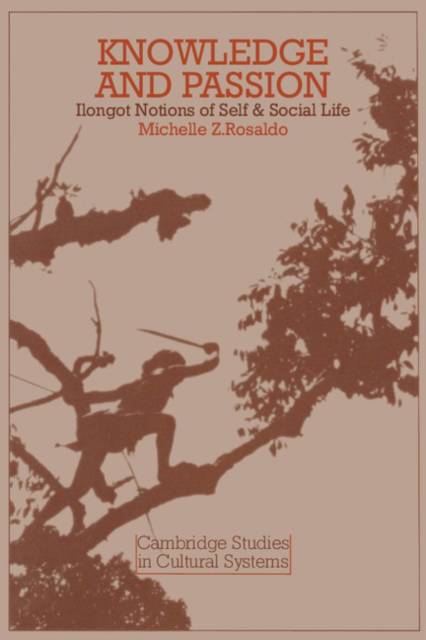
- Afhalen na 1 uur in een winkel met voorraad
- Gratis thuislevering in België vanaf € 30
- Ruim aanbod met 7 miljoen producten
- Afhalen na 1 uur in een winkel met voorraad
- Gratis thuislevering in België vanaf € 30
- Ruim aanbod met 7 miljoen producten
Zoeken
€ 50,45
+ 100 punten
Omschrijving
Michelle Rosaldo presents an ethnographic interpretation of the life of the Ilongots, a group of some 3,500 hunters and horticulturists in Northern Luzon, Philippines. Her study focuses on headhunting, a practice that remained active among the Ilongots until at least 1972. Indigenous notions of "knowledge" and "passion" are crucial to the Ilongots' perceptions of their own social practices of headhunting, oratory, marriage, and the organization of subsistence labor. In explaining the significance of these key ideas, Professor Rosaldo examines what she considers to be the most important dimensions of Ilongot social relationships: the contrasts between men and women and between accomplished married men and bachelor youths. By defining "knowledge" and "passion" in the context of their social and affective significance, the author demonstrates the place of headhunting in historical and political processes, and shows the relation between headhunting and indigenous concepts of curing, reproduction, and health.
Theoretically oriented toward interpretive or symbolic ethnography, this book clarifies some of the ways in which the study of a language -- both vocabulary and patterns of usage -- is a study of a culture; the process of translation is presented as a method of cultural interpretation. Professor Rosaldo argues that an appreciation of the Ilongots' specific notions of "the self" and the emotional concepts associated with headhunting can illuminate central aspects of the group's social life.
Specificaties
Betrokkenen
- Auteur(s):
- Uitgeverij:
Inhoud
- Aantal bladzijden:
- 304
- Taal:
- Engels
- Reeks:
- Reeksnummer:
- nr. 4
Eigenschappen
- Productcode (EAN):
- 9780521295628
- Verschijningsdatum:
- 31/03/1980
- Uitvoering:
- Paperback
- Formaat:
- Trade paperback (VS)
- Afmetingen:
- 155 mm x 234 mm
- Gewicht:
- 476 g

Alleen bij Standaard Boekhandel
+ 100 punten op je klantenkaart van Standaard Boekhandel
Beoordelingen
We publiceren alleen reviews die voldoen aan de voorwaarden voor reviews. Bekijk onze voorwaarden voor reviews.








